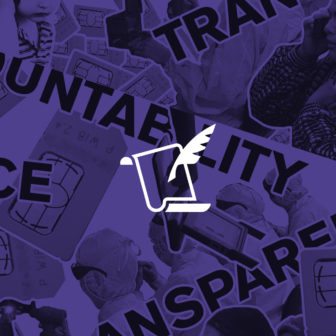Tag: US

U.S. government targets civil society leaders for surveillance without explanation
Access condemns the FBI and NSA’s targeted surveillance of community leaders and thousands of others without due process.

Verizon transparency report backs sector’s call for greater disclosures
In the U.S., where Verizon has more than 100 million customers, the company continues to receive tens of thousands of government requests for user data every month, according to its latest transparency report.

PCLOB report fails to consider the rights of non-U.S. persons or promote legislative reform
PCLOB Section 702 surveillance report fails to consider the rights of those most affected by Section 702 mass surveillance programs, or address the pressing need for legislative reform.

Private phone information being accessed secretly by law enforcement authorities
Project seeks to gather information on law enforcement technology that uses cell phones as beacons to track location of all individuals in a broad geographic area.

The European Commission wants your views on ISDS
Earlier this week, European Digital Rights (EDRi), with the help of Access, Bits of Freedom, and Vrijschrift, published a citizens answering guide to the public consultation on the Investor-State Dispute Settlement launched by the European Commission in March and open for comment until July 6.

U.S. Intelligence report misses opportunity for openness
Quick response to ODNI transparency report published today
School house lock: How the U.S. government proposes to “protect” your data
CISA and CISPA propose information sharing to thwart cybersecurity threats, but instead increases surveillance and harm whistleblowers.
U.S. Supreme Court acknowledges cell phone privacy concerns
Yesterday, the Supreme Court announced its decision in two cases, Riley v. California and U.S. v. Wurie, holding, “a warrant is generally required before a search” of information on a cell phone can occur. The ruling embraces the substantial privacy concerns inherent in the search of a modern mobile phone, which is often equivalent, as the Court says, to a mini-computer. This decision will likely further be seen as an important precedent when it comes to searches of other electronic devices like laptops or tablets.
Mo’ data, mo’ problems: Data retention rears ugly head in U.S. surveillance reform debate
Amongst the dangers faced by the USA FREEDOM Act—the surveillance reform legislation in the U.S. most likely to pass—as it moves from the House to the Senate, is the introduction of a mandatory data retention requirement.
It’s time for the Senate to act to preserve digital rights
Having passed the House of Representatives with overwhelming support, bill heads to the Senate in need of leaders to sponsor important amendments restricting NSA surveillance activities.